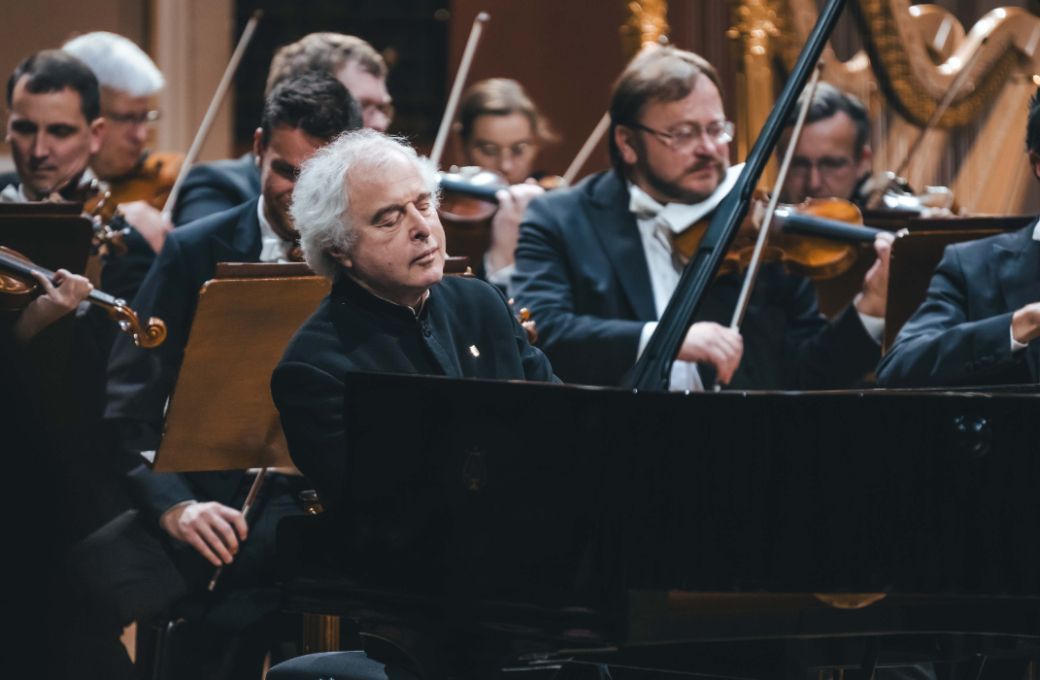Curiouser and curiouser. The deeper Semyon Bychkov and the Czech Philharmonic get into the Dvořák oeuvre, the less it sounds like Dvořák. Or at least the way the orchestra usually plays Dvořák, straight from the heart.
The new season has brought a surfeit of the composer as the orchestra fine-tunes his music to take abroad, paving the way for the 2024 Year of Czech Music. The third all-Dvořák program in as many weeks opened with his Carnival Overture, which Bychkov started at maximum volume and kept there for most of the piece. The big sound gave it impact and a quick tempo added thrills, though at a cost. The fast pace nearly overran itself at times and gave the music no chance to breathe, draining the overture of its emotional content. Rather than festive, it was overwhelming.
Some of the same problems plagued the closing Symphony no. 9 in E minor, “From the New World”, which under Bychkov’s baton focused on high drama and suspense and offered surprisingly little nuance. Details were often glossed over or buried in the big blasts of sound. When the tempo slowed and the clutter cleared, individual sections were superb – golden strings shimmered in the Largo, and the clarity and color in the woodwinds was brilliant in both the second and third movements. The volume and tempo came on like a runaway train again in the finale, dropping unexpectedly for a soft finish, as if the orchestra had simply run out of gas.
The common thread running through most performances of the “New World” Symphony is its expansiveness, the painterly invocation of broad vistas and the promise of beckoning horizons. There was little of that in this performance. Instead the music was tight, almost inwardly focused, and the flavor was cosmopolitan, suitable for almost any symphony. There’s certainly nothing wrong with that approach, which garnered a lengthy ovation from an enthusiastic audience that has grown up with Dvořák’s music. But there was nothing particularly Czech about it, given the absence of that heartfelt core.
The centerpiece of the program saved the evening, with Sir András Schiff offering an elegant reading of the Piano Concerto in G minor. No one combines passion and finesse quite like Schiff, who brought his own voice and phrasing to the music while being deeply immersed in it, both honoring and innovating the score. Schiff has been a champion of Dvořák’s original version of the solo piano part, which for many years was considered unplayable. In his hands it was mesmerizing, flowing in rippling cascades and topped by ringing high notes.

Bychkov provided a vibrant backdrop for the concerto, with glistening strings augmenting the waterfalls of notes from the keyboard, and sharp outbursts between the piano solos heightening the drama. He and Schiff wove a seamless fit in a piece that doesn’t offer much interaction between the soloist and orchestra, in particular with a glowing match of airy woodwinds and floating piano notes in the second movement, and a gathering momentum that brought the finale to an upbeat finish. Schiff capped his performance with a virtuoso, high-energy encore of Beethoven’s Bagatelle no. 4, Op.126.
How will all this sound abroad? Probably better. The high volume will be ideal for bigger halls, and the explosive interpretations will likely be more satisfying for international audiences. Still, one hopes the orchestra will also bring its unique emotional character. To do Dvořák right, let the Czechs be Czech.


